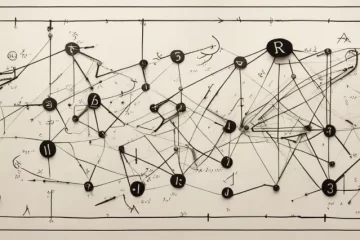Master Effective Time Management with David Allen’s “Getting Things Done”

In today’s fast-paced world, finding the perfect balance between productivity and well-being can seem like an uphill battle. Our to-do lists grow longer, deadlines become tighter, and it feels like there is never enough time in the day to get everything done. If you find yourself overwhelmed and struggling to keep up with the demands of modern life, it’s time to delve into the wisdom of David Allen‘s groundbreaking book, Getting Things Done. Allen’s comprehensive approach to time management promises to transform the way you organize your tasks and reclaim control over your ever-busy schedule.
What is Time Management
Time management is the practice of planning and controlling how one spends their time to increase productivity, efficiency, and effectiveness. It involves setting goals, prioritizing tasks, allocating specific time periods for different activities, and utilizing tools and techniques to stay organized. Time management helps individuals to make the most of their time and ensure that important tasks are completed on time, reducing stress and maximizing productivity.
Why is Time Management Important to Us
Time management is important to us for several reasons:
1. Increased productivity: Efficient time management helps us prioritize our tasks and allocate enough time to complete them. This leads to increased productivity as we are able to focus on important tasks and eliminate time wasted on unproductive activities.
2. Reduced stress: Effective time management allows us to better manage our workload and deadlines. This helps in reducing stress levels and maintaining a healthier work-life balance.
3. Improved decision-making: When we manage our time effectively, we have a clearer understanding of our priorities and goals. This enables us to make better decisions and allocate resources where they are most needed.
4. Better opportunities: By managing our time well, we have more free time to pursue additional opportunities and activities that interest us. This can lead to personal growth, skill development, and increased chances of success in various areas of life.
5. Enhanced discipline and focus: Time management requires discipline and the ability to stay focused on our tasks. Practicing these skills not only helps us in managing our time but also improves our overall self-discipline and concentration.
6. Improved mental and physical health: Efficient time management allows for a healthier work-life balance, which contributes to better mental and physical well-being. It reduces fatigue, burnout, and allows for sufficient rest and relaxation.
7. Increased efficiency and effectiveness: When we manage our time well, we are able to complete tasks more efficiently. This means that we can accomplish more in less time, leading to increased effectiveness in our personal and professional lives.
In summary, time management is important to us to improve productivity, reduce stress, make better decisions, seize new opportunities, enhance discipline and focus, improve overall health, and increase efficiency and effectiveness.
Unlocking Time Management from Getting Things Done

Getting Things Done Introduction
Getting Things Done: The Art of Stress-Free Productivity” by David Allen is a self-help book that offers a practical system for managing tasks, projects, and responsibilities to increase productivity and reduce stress. Allen introduces the concept of the “mind like water,” where a person’s mind is clear and focused, able to act dynamically and thoughtfully rather than being overwhelmed.
The book presents a five-step method to achieve this state of productivity: capture, clarify, organize, reflect, and engage. Allen emphasizes the importance of capturing all tasks and ideas in a reliable external system regularly, ensuring they are not forgotten and freeing up mental space. Then, the tasks are clarified by determining the desired outcome and the next actionable step. The organized step involves sorting tasks based on context, time, energy, and priority, allowing for a structured approach to tackling them.
Furthermore, the author emphasizes the necessity of reflection to review and reassess the progress made, ensuring that the system remains current and adaptable. Lastly, engaging refers to committing to the chosen actions and consistently following through on them.
Throughout the book, Allen discusses various techniques and tools to optimize productivity, such as establishing an efficient filing system, utilizing calendars and lists effectively, and implementing weekly reviews to maintain control and clarity. The core philosophy centers around the principle of breaking down tasks into actionable steps, which allows for better focus, increased motivation, and more efficient use of time and energy.
“Getting Things Done” offers practical advice and actionable strategies suitable for anyone seeking to better manage their workload, reduce stress, and improve productivity in both personal and professional aspects of life.
Learning Time Management Methods
In the book “Getting Things Done” by David Allen, he introduces a number of time management methods. Some of them include:
1. The Two-Minute Rule: If a task requires less than two minutes to complete, do it immediately rather than adding it to your to-do list. This helps to avoid accumulating small tasks that take longer to organize and prioritize.
2. The 5 Steps of Workflow: Allen suggests breaking down your tasks into five stages: capture, clarify, organize, reflect, and engage. This method helps to streamline your workflow and ensures that tasks are processed efficiently.
3. GTD Weekly Review: Allen emphasizes the importance of conducting a weekly review to update your to-do list, declutter your workspace, and reflect on your progress. By undertaking a comprehensive review regularly, you can prioritize tasks more effectively and maintain control over your work.
4. Contextual Lists: Allen recommends creating lists based on different contexts, such as location, tools, or people, to help you identify tasks that can be accomplished in specific situations. For example, if you have a list of tasks that can be done on the phone, you can easily check them off during your phone calls.
5. Next-Action Thinking: Instead of focusing on larger projects or goals, Allen suggests breaking them down into smaller, actionable tasks. By identifying the very next physical action required to move forward, you can prevent procrastination and make progress on your projects.
6. The 2-Minute Weekly Review: This review involves quickly looking through your calendar, project list, next actions list, and waiting-for list to ensure that everything is up to date. It helps to maintain clarity and keeps you on track.
These are some of the main time management methods mentioned in “Getting Things Done.” However, the book offers a comprehensive system that encompasses much more than these techniques.
Getting Things Done Quotes
Getting Things Done quotes as follows:
1. “Your mind is for having ideas, not holding them.”
2. “You can fool everyone else, but you can’t fool your own mind.”
3. “Your ability to generate power is directly proportional to your ability to relax.”
4. “Your mind is like a browser with multiple tabs open; you need to close some tabs to improve performance.”
5. “The more you think about your past or future, the less present you are for what is actually happening.”
6. “The clearer and more detailed you envision your desired outcome, the more likely it is to manifest in reality.”
7. “Without a clear mind, you’ll be driven by the tyranny of urgent but unimportant tasks.”
8. The biggest challenge to staying focused is not the distractions in your environment, but the ones inside your head.
9. “Your natural state is one of balance, but distractions disrupt that balance and lead to stress and overwhelm.”
10. “If it’s on your mind, your mind isn’t clear. Anything you consider unfinished in any way must be captured in a trusted system outside your mind.”

More Books About Getting Things Done by David Allen
1. Eat That Frog!” by Brian Tracy
In this classic productivity book, Brian Tracy provides practical strategies for overcoming procrastination and getting more done in less time. He emphasizes tackling the biggest and most challenging tasks first, showing readers how to prioritize their goals and increase productivity through effective time management.
2. Essentialism: The Disciplined Pursuit of Less” by Greg McKeown
Greg McKeown explores the concept of essentialism and guides readers on a journey towards minimalism. By identifying the vital few tasks and eliminating the non-essential, McKeown teaches how to focus on what truly matters, making better choices and achieving more with less effort. This book is an excellent complement to the principles of Getting Things Done.
3. The 5 AM Club: Own Your Morning, Elevate Your Life” by Robin Sharma
Robin Sharma advocates for waking up at 5 AM and investing the early hours in self-improvement and goal-setting. Sharma presents a transformative framework that combines personal mastery, potent morning rituals, and peak productivity techniques. Implementing these habits can increase individual efficiency, enabling readers to align their desires with actions, much like the principles in GTD.
4. Atomic Habits: An Easy & Proven Way to Build Good Habits & Break Bad Ones” by James Clear
In “Atomic Habits,” James Clear offers valuable insights into the psychology and science behind habit formation. Readers can learn effective strategies for creating and sustaining positive routines, breaking bad habits, and making progress towards their goals. Aligning GTD’s philosophy with the principles outlined in this book yields a powerful combination for enhanced productivity.
5. Deep Work: Rules for Focused Success in a Distracted World” by Cal Newport
“Deep Work” explores the significance of uninterrupted, focused concentration in an era of constant distractions. Cal Newport equips readers with strategies to cultivate deep work, enhancing productivity and generating remarkable results. By combining the techniques in GTD with Newport’s insights, readers can achieve heightened focus and accomplish more in less time.
These five books provide a comprehensive understanding of productivity, efficiency, and personal development, serving as excellent companions to David Allen’s groundbreaking work, “Getting Things Done.” By implementing the principles and techniques shared in these books, readers can form a powerful arsenal of strategies to conquer roadblocks, optimize their time, and boost their productivity.



0 Comments